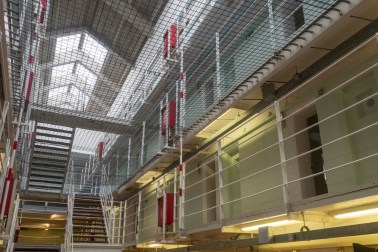The biggest hinderance for the Conservatives is that they have nothing to offer young voters. The Labour party, however, just might.
It seems that Keir Starmer will announce in his conference speech a plan to return to the idea of post-war new town corporations, which were able to compulsory-purchase land at agricultural value. It could – just possibly – mean a sharp fall in the price of new housing, massively expanding the number of first time buyers.
The great shame is that the Conservatives couldn’t bring themselves to introduce a similar policy
You don’t have to be a socialist to feel aggrieved at your inability to afford a home, something that you parents and grandparents took for granted. What have the Conservatives done to help you?
If you were fortunate enough – or so it seemed at the time – to qualify for George Osborne’s Help to Buy scheme, the experience may already be turning sour. The scheme allowed people who would otherwise not be able to afford a new home to get on the housing ladder. It boosted the fortunes of house builders, who were gifted an early exit from the 2008/09 financial crisis.
But it came with a horrible sting in the tail. Help to Buy offered buyers an ‘equity loan’ worth up to 20 per cent of the value of a new home – thus allowing buyers who could only afford a five percent deposit to obtain a mortgage of 75 per cent loan-to-value. In the event of a housing crash, the Treasury, as provider of the equity loan, was to take the biggest hit. Only if a home fell in value by 25 per cent or more would the mortgage-lender be exposed.
But there was a nasty time bomb. For the first five years the equity loan was interest-free. For many buyers that five year period is coming to an end, along, perhaps, with a five year fixed rate mortgage they took out to buy the property. As a result, not only are they experiencing soaring mortgage rates, they are having to pay interest on 95 per cent of the value of their home, as opposed to 75 per cent, as previously.
The underlying problem with Help to Buy was that it simply boosted affordability without doing anything to increase the supply of homes or land available for house-building. As a result, it was doomed to be inflationary – making life even harder for the next generation of home-buyers.
But it seems that Starmer is, finally, prepared to address the real problem behind the last 30 years of high house price inflation: high land values, inflated by an artificial shortage created through the planning system. An acre of agricultural land in the South East might cost £10,000. Grant it planning permission, on the other hand, and that might increase to well over a million. That dramatic increase in value – created at the stroke of a planner’s pen, and exacerbated by the slow release of development land through the planning system – is in most cases captured by the landowner.
Starmer wants to turn that around. Compulsory-purchase of land at agricultural value – or something more like £10,000 an acre – would allow that land to be developed by new town corporations, or to be passed on to developers, at far lower cost. Not only that, the increase in the value of the land created by granting the land planning permission would be available to help build the necessary infrastructure – roads, schools, community centres etc – to help a new town function. At the moment, developers will often promise to build such facilities, but they end up being a long time coming.
Landowners may squeal, and free-marketeers will complain too (although the current system can hardly claim to be a free market or anything like it). But there is little denying that cheaper housing, with proper infrastructure to boot, could be a huge voter-winner.
This isn’t to say that Starmer’s plan will succeed. His development corporations are all too likely to suffer the same paralysis as other parts of the public sector at the moment, with staff demanding four day weeks and the right to work from home etc, while chief executives bid up their pay and pensions in line with the private sector.
But if I were 25 and paying through the nose to rent a flat privately because I couldn’t afford to buy a home, this one policy would be enough to persuade me to vote Labour. The great shame is that the Conservatives couldn’t bring themselves to introduce to policy on compulsorily-purchasing land at much lower values. Many wanted too, but as happens rather too often with Conservative governments, the landowning and Nimby lobbies won the day.







Comments